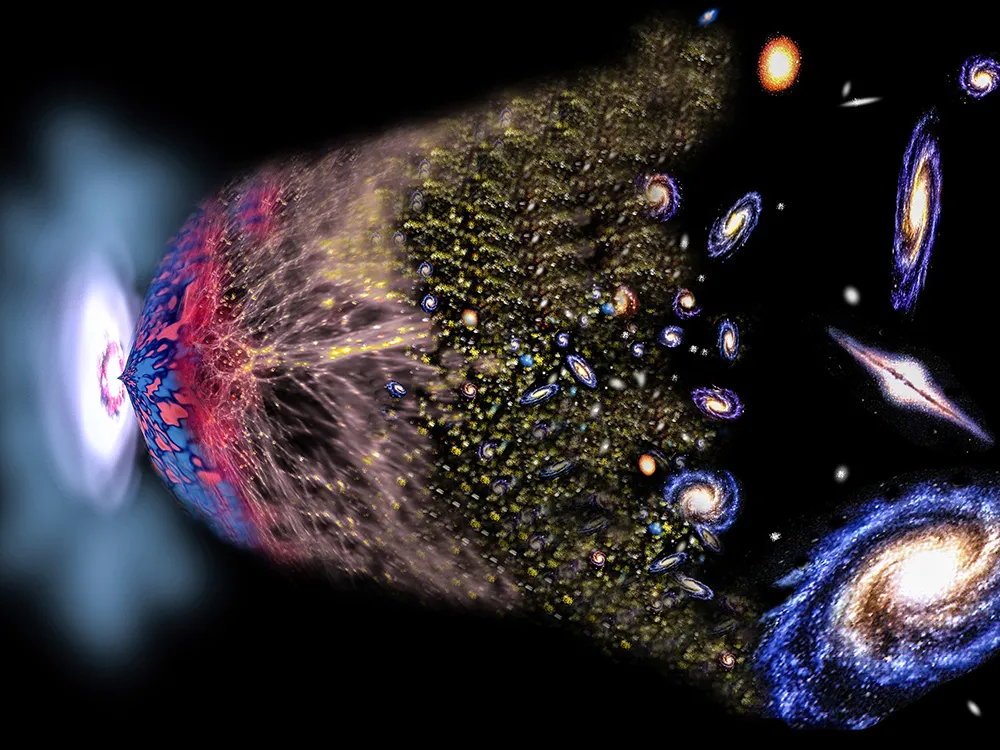
Why Didn't the Early Universe Collapse into a Black Hole?
Share
Have you ever wondered why the universe didn't collapse into a black hole during the Big Bang? It turns out that making a black hole is not as simple as you might think.
Read on as we will explore the fascinating reasons behind this cosmic phenomenon.
The Recipe for Making a Black Hole
Creating a black hole involves squeezing matter to an incredibly high density. By surpassing a critical threshold known as the Schwarzschild radius, gravity takes over, compressing the matter into an infinitely small point and forming a black hole. For example, if you were to compress a human body to the size of an atomic nucleus, a black hole the width of an atomic nucleus would be created. Similarly, squeezing Earth would result in a bean-sized black hole with the same mass.
In nature, black holes are formed when massive stars exhaust their fuel. The gravitational attraction of these dying stars pulls in as much material as possible, overpowering other forces and creating black holes several miles across with masses equivalent to a few suns.
Why Didn't the Universe Collapse into a Black Hole?

The early universe, around 13.77 billion years ago, was incredibly dense and hot. However, there are two reasons why it did not collapse into a black hole.
-
Density Differences: Black hole formation requires not only high densities but also density differences. Gravity acts on these differences to trigger the collapse of matter. In the early universe, the density was uniformly high everywhere, with negligible differences. As a result, there were no gravitational variances to initiate black hole formation.
-
Dynamic Nature of the Universe: The early universe was not static; it was dynamic, evolving, and expanding. Unlike a star collapsing in empty space, the universe's expansion changed the rules of black hole formation. To collapse into a singularity, an overwhelming amount of mass is required to counteract the natural expansion and force a collapse. However, there simply wasn't enough mass in the universe, both then and now, to achieve this. Measurements have shown that our universe will continue expanding into the future, without the possibility of a "big crunch" leading to a singularity.
Conclusion
While making a black hole involves extreme density and compression, the early universe's unique conditions prevented it from collapsing into one. The absence of density differences and the dynamic, expanding nature of the universe played crucial roles. As our universe continues to expand, we can appreciate that life as we know it thrives outside the confines of black holes.




